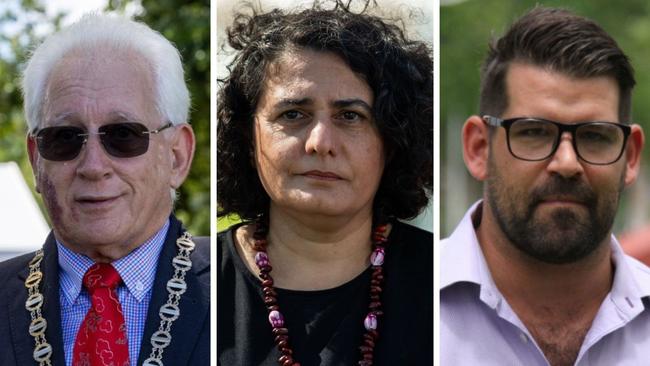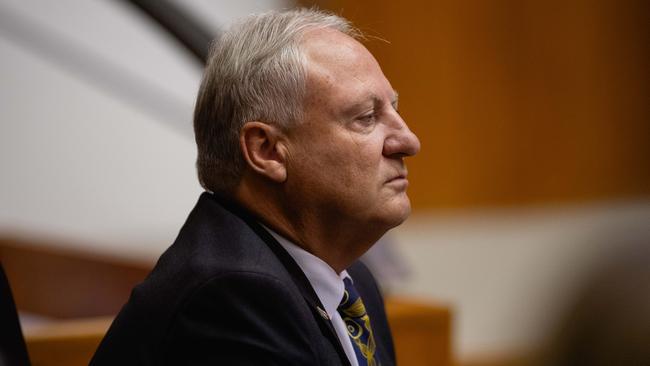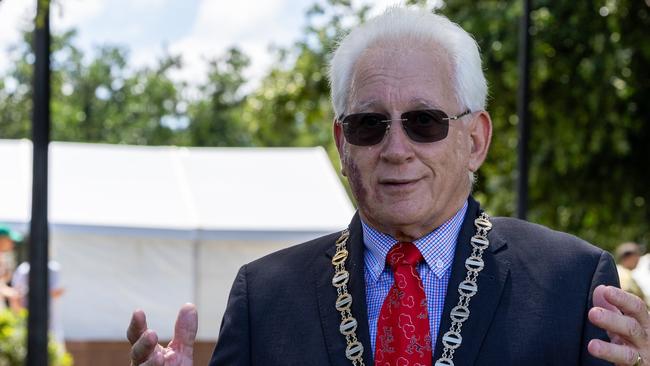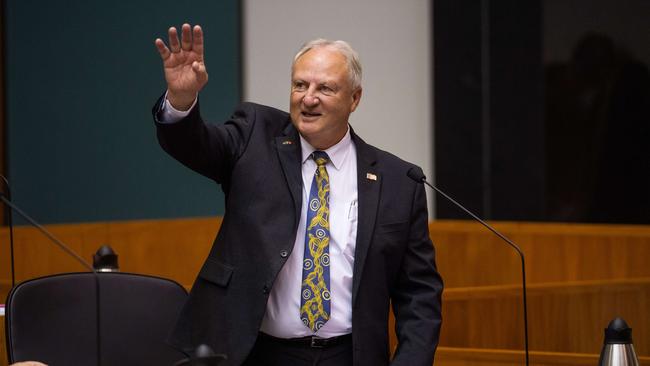NT government seeks to change how mayors are elected as part of Local Government Act 2019 amendments, consultation opens
A proposed change to the Northern Territory’s Local Government Act would make it so councillors — rather than voters — choose their mayor, as the government seeks feedback from the public. Find out how you can submit your feedback.

News
Don't miss out on the headlines from News. Followed categories will be added to My News.
A proposed change to the Northern Territory’s Local Government Act would make it so that councillors — rather than voters — choose their mayor, as the government seeks feedback from the public.
The proposal would affect the councils of Darwin, Palmerston, Litchfield, Katherine, Alice Springs and Barkly — about a third of all councils in the NT — that currently elect their mayors via popular vote.
It would essentially bring mayors closer in line with premiers and prime ministers who are chosen by their fellow elected members rather than by voters directly, as used in the present.

It would, however, shift the Territory away from its neighbouring jurisdictions — Western Australia, Queensland and South Australia — that currently elect their mayors directly or use a mix of the two systems.
Instead, the NT would join Victoria and most of New South Wales that rely on councillors to elect their mayors.
There are 11 councils in the Territory that choose to appoint their mayor at the first meeting of the council.
According to the proposed amendments, the time frame of this would be changed from the first meeting of the council to the fourth to “provide time to build working relationships and assess leadership strengths, without causing excessive delays”.

Local Government Association NT president and Darwin Lord Mayor Kon Vatskalis says the proposed changes — particularly how mayors are elected — should stay “as they are”.
“This allows local government councils to do what’s best for their community by providing a choice in how they appoint their principal member – whether by the council from within for cultural reasons, or by the community,” he said.
“LGANT would prefer the amendments focus instead on fixing the Code of Conduct framework which the sector has been asking the government to do for two years now.”
Litchfield Council did not respond to questions about whether or not it supported the proposed changes, but it did say it would provide comment “directly to the department with regards to the amendment”.
City of Palmerston provided a similar response, saying it would review the proposed changes and discuss it in a future council meeting.

Minister for Housing, Local Government and Community Development Steve Edgington said he “invited councils, local government stakeholders and the broader community to have their say on … [the] proposed amendments”.
“Our approach to local government reform is measured and grounded in meaningful consultation — driven by what communities want and need, not a one-size-fits-all model,” he said.
Public consultation sessions will begin in Darwin on May 23 followed by sessions in Alice Springs, Tennant Creek, Tiwi Islands, Katherine, Nhulunbuy, Jabiru and Groote Eylandt.
Consultation finishes on June 20.
You can share your thoughts by completing the online surveys at Legislative Amendments to the Local Government Act 2019 | Have Your Say Northern Territory or by emailing a formal submission to LGLaw.CMC@nt.gov.au.




